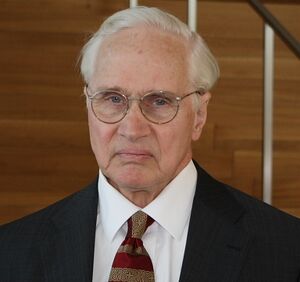Francis Sejersted
(academic) | ||||||||||||||
|---|---|---|---|---|---|---|---|---|---|---|---|---|---|---|
 | ||||||||||||||
| Born | 8 February 1936 Oslo, Norway | |||||||||||||
| Died | 25 August 2015 (Age 79) Oslo, Norway | |||||||||||||
| Nationality | Norwegian | |||||||||||||
| Alma mater | The Norwegian Armed Forces Intelligence School, University of Oslo | |||||||||||||
| Parents | • Fredrik Christian Steffens Sejersted • Victory Place | |||||||||||||
| Children | Fredrik Sejersted | |||||||||||||
| Siblings | Ole M. Sejersted | |||||||||||||
| Spouse | Hilde Sejersted | |||||||||||||
| Interests | Nicolai Rygg | |||||||||||||
| Party | Conservative Party of Norway | |||||||||||||
| Relatives | • Francis Harbitz • Hans Fredrik Dahl • Knut S. Selmer | |||||||||||||
| ||||||||||||||
Francis Sejersted was a Norwegian historian with an emphasis on modern economic history and Scandinavian history in the 1800s and 1900s. He is best known from the time he was chairman of the Norwegian Nobel Committee (1991 to 1999). He was chairman of the Norwegian Freedom of Expression Commission 1996-1999[1] and chairman of the board of the grant giving foundation Fritt Ord from 2000 to 2011.[2]
Background
Sejersted was the son of Supreme Court lawyer Fredrik Christian Steffens Sejersted, grandson of Francis Harbitz. He was a cousin of Hans Fredrik Dahl and Knut S. Selmer.[3] The family had long legal traditions. He chose to study philology and history. He was chairman of the Conservative Student Association in 1957 and the Norwegian Student Society in 1962.
Sejersted completed the Armed Forces' Russian course at the (present) The Norwegian Armed Forces Intelligence School. Among other things, his knowledge of Russia made it possible for him to study at the State University of Moscow, and after this study stay he published his Moscow diary in 1961.[4]
He was the father of the lawyer (current Government Attorney) Fredrik Sejersted and to the literary scholar Jørgen Magnus Sejersted (professor of Nordic literary studies and dean of the Faculty of Humanities at the University of Bergen).[5]
Career
Francis Sejersted was a lecturer in history at the University of Oslo 1971–1973 and then professor of social and economic history at the same place from 1973 to 1998. From 1988 to 1998 he was director of the Center for Technology and Culture at the University of Oslo. From 1999 he was affiliated with the Department of Social Research.
Sejersted was a member of the Norwegian Nobel Committee 1982–99, from 1991 as chairman. From 1990 to 1999 he was also a board member of the Nobel Foundation in Stockholm.
From 1996 to 1999, he was chairman of the government-appointed Norwegian Freedom of Expression Commission and from 2000 to 2011 chairman of the board of Fritt Ord.
Sejersted was a member of the Conservative Party and in 1962 was chairman of the Norwegian Student Society. He is considered a prominent representative of the value-conservative wing of the Conservative Party. He was the editor of the conservative student association's magazine Minerva in 1958.
Sejersted as an historian
Sejersted is considered one of the founders of economic history as an independent historical sub-discipline. He was also one of the first in Norway to receive a professorship in economic history. He wrote about the transition to industrial society in Norway in the 19th century. In 1973, Sejersted wrote about the former head of Norges Bank, Nicolai Rygg and monetary policy in the 1920s . This is considered a central work on parity policy in the 1920s, when the Norwegian economy underwent a unique Norwegian recession due to a misunderstood desire to regain the monetary value from before the First World War.
In the 1970s, historians Sejersted, Even Lange and Tore Jørgen Hanisch formulated what would become the leading understanding of Norway's way out of the crisis in the 1930s: That the crisis was overcome through technological change and growth in the home industries, and not through Keynesian demand growth or export. This understanding can be briefly summarized by the term "growth through crisis".
In the 1980s, Sejersted was the initiator of an interdisciplinary research project on technology history, and he was, among other things, project manager for a history book in connection with Norsk Hydro's 100th anniversary.
Sejersted's synthesis for the interpretation of the historical development of the last 200 in Norway is known as «democratic capitalism». He highlighted the importance of petty bourgeoisie and local democratic forces from the 19th century onwards. This is in contrast to the dominant interpretation, where the growth of the peasants and the labor movement is in focus. Sejersted advocated seeing the political development of the 19th century as a manifestation of the ideology of the rule of law. This is in contrast to Jens Arup Seip's theory of the state dominated by a tight-nit network of civil servants. The absence of a strong industrial bourgeoisie (such as the Wallenbergs in Sweden) meant that the state gained a prominent place in the Norwegian system. According to Sejersted, the state played the role of "compensatory" bourgeoisie.[6]
References
- ↑ https://www.regjeringen.no/no/dokumenter/nou-1999-27/id142119/?ch=1
- ↑ https://web.archive.org/web/20150907001559/http://www.frittord.no/om-fritt-ord/historikk
- ↑ http://nbl.snl.no/Francis_Sejersted
- ↑ https://digitalt.uib.no/handle/123456789/3384
- ↑ http://www.aftenposten.no/nyheter/Sejerherren-7882514.html
- ↑ http://urn.nb.no/URN:NBN:no-nb_digibok_2009081800111
Wikipedia is not affiliated with Wikispooks. Original page source here